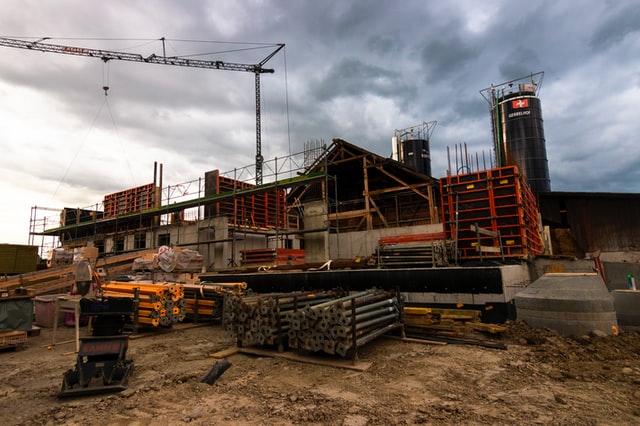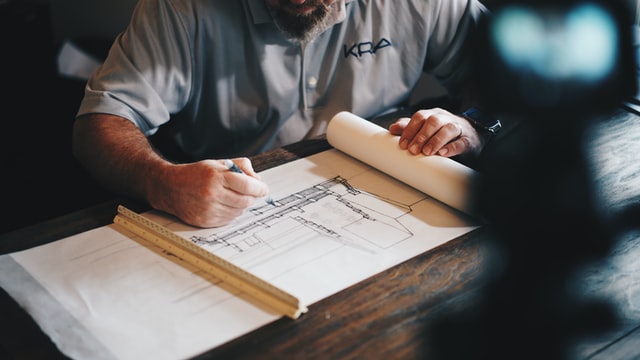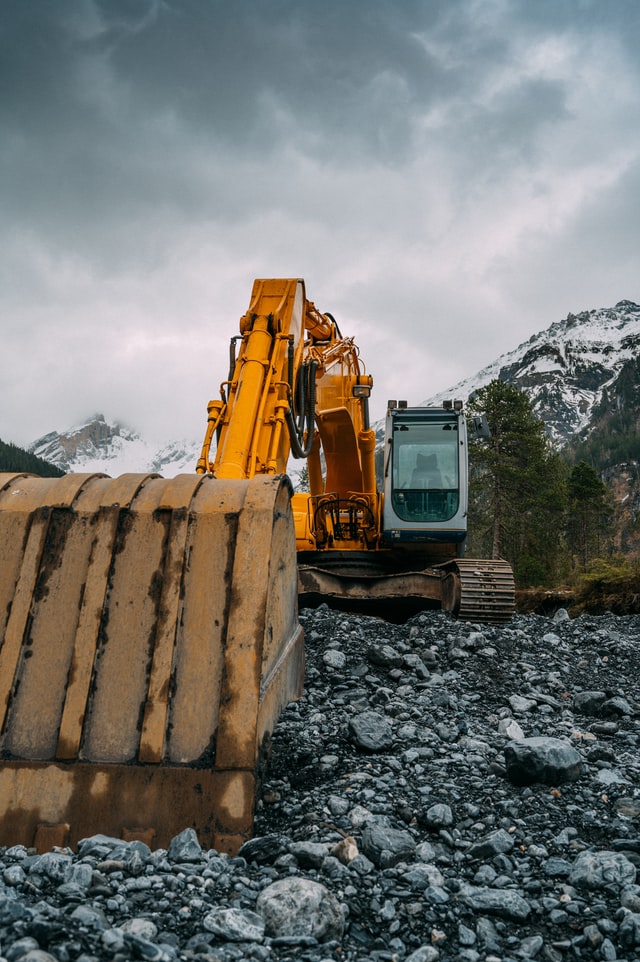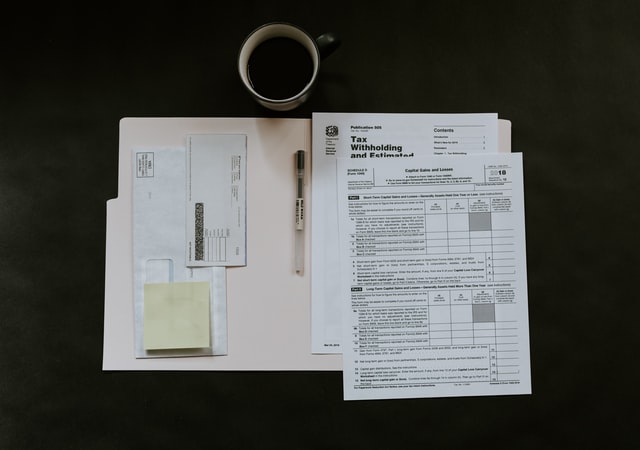Budget

Ein Budget wird verwendet, um die Gesamtkosten eines bestimmten Projekts zu antizipieren.
Viele Baukosten sind nicht verhandelbar. Es ist ziemlich schwierig, mit der Stadt oder Architekten über die Kosten für Genehmigungen und Zeichnungen zu feilschen.
Alles in diesem Abschnitt sollte mit einem Körnchen Salz eingenommen werden, da es stark von Ihrem Standort abhängt, persönliche Fähigkeiten und persönliche Vorlieben.
Hier ist eine grobe Darstellung der Budgetierung für OffGrid.
20% Reserve für unvorhergesehene Probleme
23% Land / Lage
23% Strukturen
23% Systeme
10% Live Support, Verwaltungs- und Rechtskosten
Backups / Kontingenz

Wenn Sie OffGrid leben, ist es wichtig, über bestimmte finanzielle Reserven zu verfügen. Wenn ein wichtiges System ausfällt und Sie kein lokales Backup installiert haben oder eine Problemumgehung nicht möglich ist, müssen Sie möglicherweise schnell etwas beschaffen. Wenn Ihre Wasserpumpe mitten im Sommer bei Nutztieren kaputt geht, Heizpausen mitten im harten Winter, Macht stirbt ganz, usw. usw.. Es wird dringend empfohlen, Backups für wichtige Systeme wie z : Wasser, Elektrizität, Heizung. Diese Sicherungen müssen Ihr Standard-Setup nicht unbedingt vollständig ersetzen können, Sie sollten jedoch eine angemessene Größe haben, um eine Weile Last tragen zu können. Die Preise für lebenswichtige Systeme steigen in etwa 15-20% für die Installation eines Fallbacks. Während es ein großes aussehen kann “Preiserhöhung” Sie werden es früher oder später brauchen, 100% garantiert wird eines Tages etwas Vitales kaputt gehen.
.
Wenn Systeme von Anfang an so eingerichtet sind, dass ein möglicher Ausfall berücksichtigt wird, kann dies viel Stress abbauen und im Grunde die Notwendigkeit von Ausgaben beseitigen “Notfall $ / €” um etwas zu umgehen, bis es richtig ersetzt wird. Ex: einen Generator zu haben ist eine Legitimität “Problemumgehung” für Ihr elektrisches System, Gut zu verwenden, wenn Batterien gewartet werden, Kabel wechseln, Installation neuer Sonnenkollektoren usw., aber es ist kein “Backup” für den Fall, dass Ihr Hauptwechselrichter stirbt. Es ist exponentiell teurer, einen vollen Haushalt zu führen 24/7 an einem Generator, um alles zu warten, während Sie auf das Eintreffen Ihres neuen Wechselrichters warten müssen. Das richtige Backup wäre zu haben 2 Wechselrichter einrichten, Verwenden Sie eine als Standard und verwenden Sie die zweite, wenn die Standardeinstellung fehlschlägt. Bestellen Sie beiläufig einen neuen Wechselrichter. Wenn es ankommt, Lassen Sie Ihren Generator laufen 20 Minuten beim Ersetzen des defekten.
Planen Sie Ihr Baubudget

Es gibt viele Möglichkeiten, wie Sie ein Projekt budgetieren können, und die Erfahrung bestimmt normalerweise, welche Methode am besten funktioniert. Eine der gebräuchlichsten und bewährtesten Methoden zur Planung eines Baubudgets ist die Aufteilung der Ausgaben zwischen harten und weichen Kosten. In buchhalterischer Hinsicht, Die weichen Kosten eines Bauprojekts sind alle Kosten, die nicht direkt mit dem physischen Bau des Projekts zusammenhängen. Sie können sich diese als alle Dienstleistungen vorstellen, die Sie vor und nach dem Bau benötigen. Auch bekannt als immaterielle Ausgaben, weiche Kosten machen sich in der Regel bezahlt 30 Prozent des Gesamtbudgets eines Bauprojekts.
.
Das andere 70 Prozent des Budgets eines Bauprojekts gehen auf harte Kosten zurück. Auch bekannt als “Ziegel und Mörtel” Kosten, Harte Kosten sind Ausgaben, die in direktem Zusammenhang mit der physischen Errichtung des Gebäudes stehen, Straße, Brücke, oder anderes Projekt. Denn harte Kosten sind greifbar – physische Produkte mit Fixkosten – es ist normalerweise einfacher, die Kosten in dieser Kategorie zu schätzen und zu kontrollieren. Weiche Kosten sind im Wesentlichen alle anderen Ausgaben, die nicht in diese Kategorie fallen. Im Vergleich zu harten Kosten, weiche Kosten sind schwieriger abzuschätzen, da die Servicegebühren tendenziell schwanken.
.
Indem Sie Ihr Baubudget von vornherein in diese beiden Kategorien einteilen, Sie können Ihr Budget besser verwalten. Sie bekommen ein besseres Gefühl für alle Ihre Ausgaben in beiden Kategorien und es wird einfacher, mögliche Ausgaben zu identifizieren, die Sie möglicherweise versehentlich ausgelassen haben. Indem Sie Ihre Kosten im Hinblick auf Hard vs. Sanft, Sie können klarer sehen, auf welche Ausgaben Ihr Projektmanagement-Team Maßnahmen zur Kostenkontrolle anwenden kann und auf welche Ausgaben Sie weniger Einfluss haben.
Eigentum

Die Immobilienkosten variieren stark je nach Standort und Umfang des Projekts. In begehrten Lagen, die Grundstückskosten können bis zu betragen 60 Prozent des Budgets eines Projekts. An weniger begehrten Standorten, Ihre Grundstückskosten können geringer sein als 10 Prozent Ihres Budgets. Unabhängig vom Wert der Immobilie, Es ist wichtig, eine realistische Budgetspanne für Ihre Immobilieninvestition festzulegen. Denken Sie daran, Die Grundstückskosten beschränken sich nicht nur auf den Grundstückspreis. Darin enthalten sind auch die Grundstücksgebühren, Finanzierungen, und Steuern, die Ihre Gesamtinvestition ausmachen.
.
In der Buchhaltung, Grundstücke werden als Kapitalkosten angesehen – eine einmalige Ausgabe, die den Wert für mehr als ein einziges Geschäftsjahr aufrechterhält oder weiter steigert. Die Grundstückserwerbskosten sind ein kritischer Aspekt des Budgets eines Bauprojekts, da sie letztendlich die Rentabilität des Produkts bestimmen. Bei einem Neubauprojekt, Der Wert der Immobilie wird zwangsläufig steigen. Die Berechnung eines exakten Wertes von Anfang an zeigt Ihnen oder dem Kunden, um wie viel sich der Wert durch die Investition in das gebaute Objekt erhöht hat.
Professionelle Dienste

Bauprojekte erfordern ein breites Spektrum an professioneller Beratung und weiteren Dienstleistungen, die als weiche Kosten gelten. Je nach Umfang Ihres Projektes, Sie können Dutzenden verschiedener professioneller Dienstleistungen und Genehmigungen unterliegen, die erforderlich sind, um mit dem Bau fortzufahren. Während des Bauvorhabens fallen verschiedene Gebühren an, aber hier sind einige der anfänglichen Gebühren, die mit der Bauvorbereitung verbunden sind: Bau- und Nutzungsgenehmigungen von lokalen Regierungen und damit verbundene Kosten für die Beantragung von Genehmigungen und die Erleichterung von Transaktionen. Vermessung, Studien- und Prüfungsgebühren, wie geotechnisch oder ökologisch. Architektur- und Designdienstleistungen, inklusive Masterplanung. Professionelle Ingenieurstempel, z.B. B. durch Zivil, elektrisch, Maschinenbau- oder Bauingenieure. Buchhaltung, Bank- und Immobiliengebühren
.
Sobald die Projektzeichnungen und Genehmigungen genehmigt sind und alle Vorarbeiten abgeschlossen sind, Das Projekt geht in die Bauphase über, wo zusätzliche Gebühren anfallen können. Abhängig von Ihrem Bereich, Für Bauschutt und Altstoffe müssen Sie ggf. örtliche Entsorgungsgebühren entrichten. Einmal gebaut, Für Ihr Projekt fallen zusätzliche Prüfgebühren und Endabrechnungsleistungen an.
Arbeit

Ein grundlegender Aspekt einer realistischen Baubudgetierung ist die Vorhersage Ihrer Arbeitskosten. Handwerker, Subunternehmer, Ausrüstungsbetreiber und andere Fachleute haben Kosten, die mit der Anwesenheit vor Ort verbunden sind.
.
Bauarbeitskosten gehören zu den am schwierigsten zu schätzenden Ausgaben. Bis zum Projektstart, Es ist schwierig, die genaue Anzahl der Stunden vorherzusagen, die die Arbeiter benötigen, um die Arbeit zu erledigen. jedoch, Arbeitskostenschätzungen sind entscheidend für die Montage und die Kommunikation mit den Mitarbeitern, um die Produktion auf Kurs und im Budget zu halten. Die Verbesserung der Arbeitsproduktivität ist ein wesentlicher Weg, um Ihr Bauprojekt rentabel zu halten.
Ausrüstung und Werkzeuge

Jedes Bauprojekt erfordert Geräte und Werkzeuge in unterschiedlichen Größen und Einsatzzwecken. Je nachdem, wie Geräte und Werkzeuge verwendet werden, es können harte oder weiche Kosten sein. In der direkten Konstruktion des Projekts, Es werden Geräte verwendet, die für den Abbruch erforderlich sind, Spielraum, Einebnung und Auffüllung von Grundstücken, oder zum Pflastern von Einfahrten und Parkplätzen. Wenn Sie bereits bestimmte Geräte oder Werkzeuge besitzen, Sie gelten für Rechnungslegungszwecke als Kapitalausgaben.
.
Auftragnehmer sollten ihre Material- und Arbeitslisten verwenden, um die Arten von Ausrüstung und Werkzeugen zu bestimmen, die sie für die Arbeit benötigen, und wie viele von jedem. Basierend auf dieser Liste, Auftragnehmer müssen ihre Ausrüstung möglicherweise von vertrauenswürdigen Anbietern in ihrer Nähe mieten.
.
Wählen Sie immer einen seriösen Baumaschinenhändler, wenn Sie schwere Geräte und Werkzeuge für Bauprojekte mieten. Kompetente Anbieter wählen gemeinsam mit Ihnen die richtigen Werkzeuge und Geräte aus und definieren die damit verbundenen Kosten im Vorfeld klar.
Dienstprogramme und Steuern

Je nach Projekt, vielleicht brauchst du Gas, Wasser, Kanal, und Elektroinstallationen. Diese Versorgungsunternehmen haben ihre eigenen damit verbundenen Genehmigungs- und Anschlussgebühren, die im Gesamtbudget des Bauprojekts berücksichtigt werden müssen.
.
Es ist möglich, dass Ihr Projekt auch lokalen und staatlichen Steuern unterliegt, die von verschiedenen Behörden verwaltet werden. Die Steuersätze hängen von der Größe und Art der Konstruktion ab, wobei größere Bauinvestitionen stärker besteuert werden. Stellen Sie sicher, dass Sie mit einem zertifizierten Buchhalter zusammenarbeiten, der Erfahrung in der Hausfinanzierung hat, um sicherzustellen, dass Sie alle Steuern ordnungsgemäß abbuchen.
